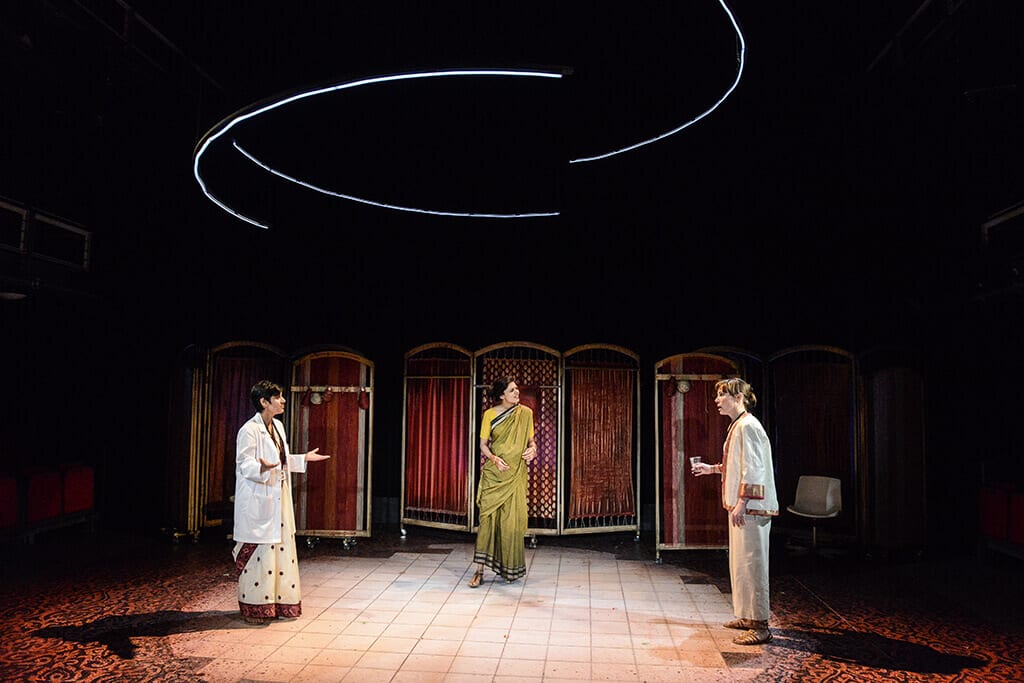Made in India explores the question of surrogacy and paints a complex vision of female inequality. The story revolves around a trio of women, all connected by their desperate need of each another, portrayed by a remarkably strong cast. Eva (Gina Isaac) is a Londoner working in advertising, left bereaved and childless by her husband’s death, who has decided to pay the price to become a mother. Dr Gupta (Syreeta Kumar) runs a surrogacy clinic in India. Aditi (Ulrika Krishnamurti) is a young surrogate mother who hopes to afford a better life for her daughters. Their encounter is set in the aftermath of an election that bans foreigners from resorting to surrogate mothers in India.
The scenery consists in a set of colourful screens, used to project political news and adverts during transitions between acts. This precarious background reflects the women’s equally precarious bond, as they unite against the ban.
Satinder Chohan’s script exposes the gaps between the protagonists’ experiences, and their ultimate inability to cross it. When she comes to the clinic, Eva insists on choosing and meeting her surrogate, against the wishes of Dr Gupta, who reluctantly acts as an interpreter. Even as the linguistic barrier between Eva and Aditi gradually falls, it remains clear that Eva’s best intentions and white guilt fail to close the distance between herself and the young woman whose body she uses to reach her dream of becoming a mother. Her refusal to see their difference in wealth and status irrevocably leads to a short-lived and brutally aborted friendship, as her pregnancy weighs more and more heavily on Aditi. In this dynamic, the only unfaltering figure is that of Dr Gupta, who never parts from her impregnable business sense. Her ambiguous feelings towards her customer ultimately erupt in her outburst to Eva: ‘As you took from us, we take from you’.
Memorable, slogan-like lines are a frequent feature of Made in India. The play makes much of Eva’s PR skills during the anti-ban campaign. Motherhood, she says, will make her ‘a true woman’. The line speaks volumes about Eva’s readiness to put aside her beliefs to serve her own interests. At this point, you may have guessed that I found it quite difficult to sympathise with Eva. However, her initial sympathy for Aditi’s predicament, her despair and dwindling morals make her a well-rounded, at times pathetic figure.
This production presents a thoughtful take on a pressing issue: a ban on commercial surrogacy was passed in India a few months ago. This sense of political urgency is present at every moment of the play, and makes for a raw and compelling experience.

